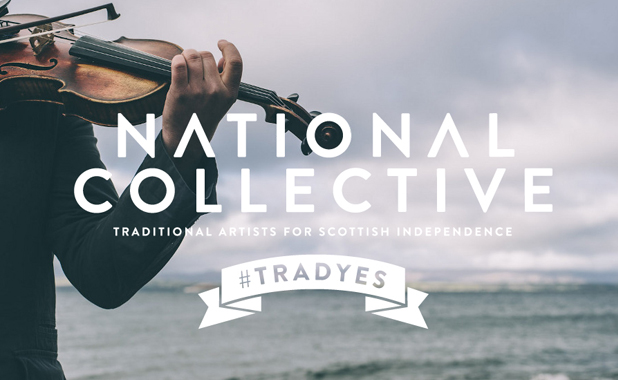This isn’t much of a political blog but my curiousity has been piqued by a new post over at National Collective which has just launched their #TradYES campaign – a means by which traditional artists can explore the correspondence between their craft and support for a YES in the indyref.
Anyone with a knowledge of Scotland’s oral traditions might expect this to be a vehicle for an all too familiar brand of cultural nationalism. The carrying stream of Scottish ‘folk’, epitomised by the School of Scottish Studies, has long had something of a nationalist undercurrent. Two of their most renowned collectors, Hamish Henderson and Calum Iain Maclean, were not shy about making their sympathies known.
For Maclean, there were two approaches to the oral tradition: what he called ‘the scientific’ and ‘the nationalist’ (I’ll let you guess which one he thought more important). The whole task of collecting was of the utmost urgency as Maclean felt that the oral traditions, particularly in the Gaidhealtachd, were passing away before his eyes. ‘I’m really afraid’ he wrote to Henderson in 1957, ‘that the old Highland spirit is as dead as could be’. To another audience he cautioned that ‘we may very soon learn to our cost that we cannot at the one and same time serve the God of Gaelic culture and the Mammon of English imperialism’. You get the picture.
So I was interested to note that National Collective #TradYES campaign was launched by my Edinburgh University colleague Mairi McFadyen whose PhD is from the School of Scottish Studies. The stall she lays out, however, is significantly different from these earlier movements.
For one thing, it sees aspects of Scottish tradition within a much wider cultural frame. It also displaces ‘the national’ for ‘the local’ – an interesting move. What strikes me as most important is that #TradYES is both generative and future-orientated. For all the ‘trad’ in ‘#TradYES’, National Collective’s campaign represents more a bringing-to-life than a saving-the-past. That distinction may prove significant.
And the bid to foster an ‘evolving sense of self’ may resonate with a greater diversity of voices than could have been foreseen by Henderson and Maclean.
Interestingly, #TradYES has articulated something from which their Unionist opponents have long shied away. For those in the No camp it may seem a peripheral problem that National Collective are stirring conversations and ideas about a cultural future. But it comes across as another instance where in saying nothing Better Together have nothing very much to say.

